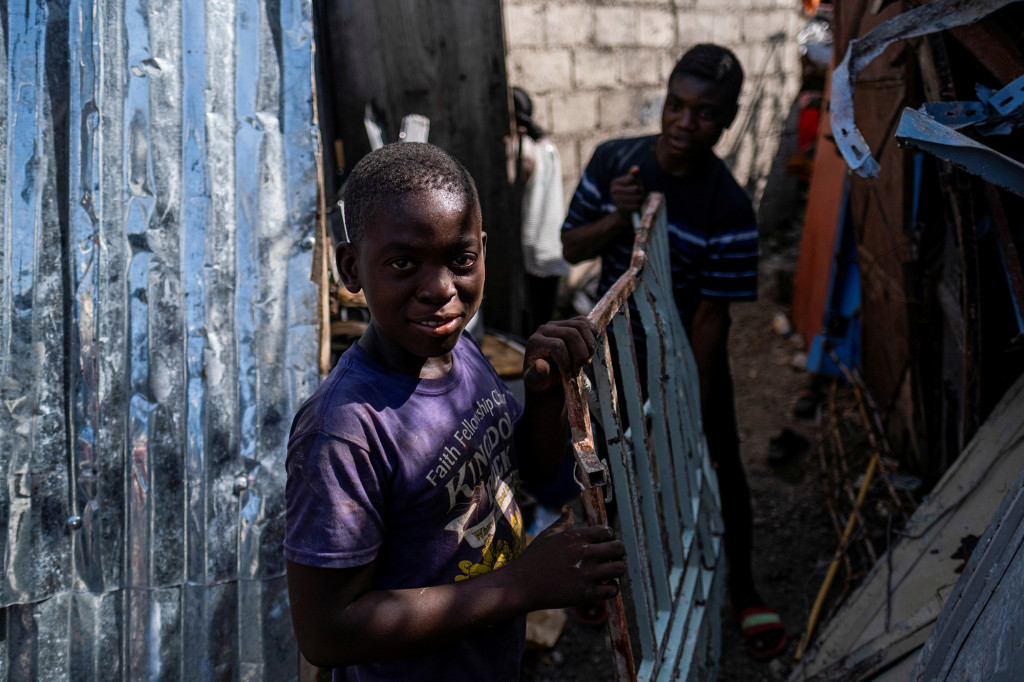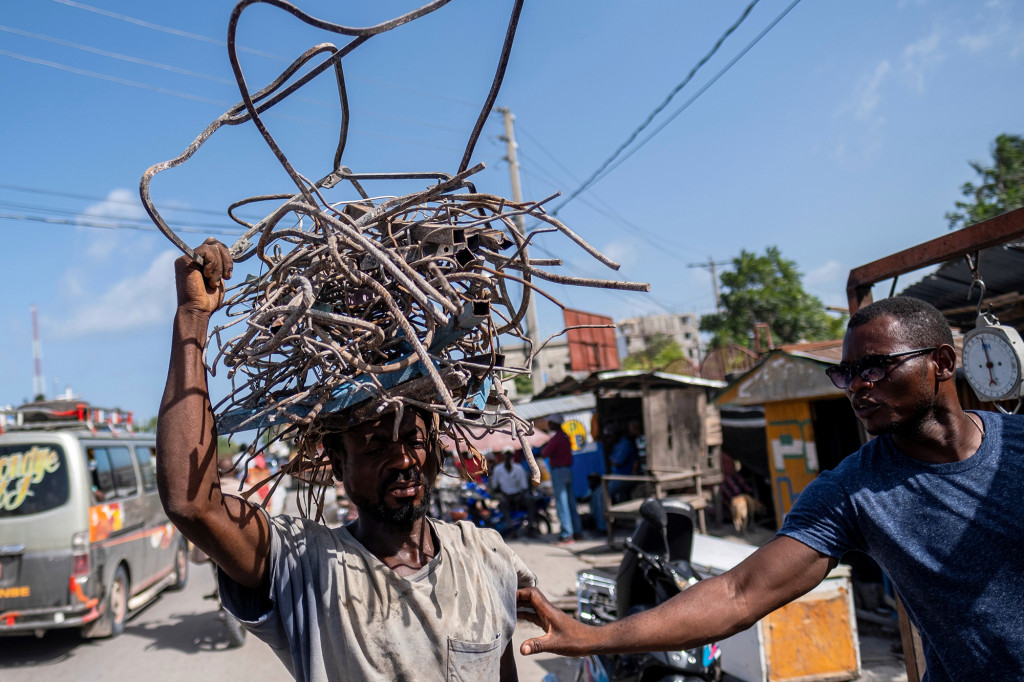LES CAYES, Haiti, Aug 24 – After a devastating earthquake leveled tens of hundreds of properties in Haiti, some residents have began to choose up the items, amassing scrap steel from the rubble to resell and make ends meet.
Djedson Hypolite deftly coiled severed electrical wires at a collapsed house within the southern Haitian metropolis of Les Cayes on Monday afternoon, as he scanned the particles for extra steel.
The 13-year-old boy and his brother Dawenson, 9, have been extracting and reselling wires and cables discovered within the wreckage for the reason that quake struck on Aug. 14, killing over 2,000 individuals throughout Haiti.
“We’re fatherless and our house collapsed, so we’re simply making an attempt to outlive someway,” stated Hypolite, explaining the 2 brothers earned about $5 a day amassing {the electrical} wires.
The earthquake occurred simply over a month after the assassination of President Jovenel Moise, deepening the political turmoil within the Western Hemisphere’s poorest nation, the place violent gangs run rampant, starvation is on the rise and healthcare companies had been already buckling beneath COVID-19.
Although official efforts to clear the rubble have been sluggish in hard-hit cities and cities throughout Haiti’s southern peninsula, scrap steel collectors and recycling enterprises are busier than ever, offering much-needed money for lots of of residents and further palms for clearing particles.
All throughout the town, residents carried the scrap steel to assortment websites on motorbikes, pickup vans, or balanced on prime of their heads. Those that might shoulder the load hauled aluminum sheeting, which netted 25 cents per kilo, or iron rods, which went for 10 gourdes at a recycling assortment website in downtown Les Cayes.
Holmes Germain, the proprietor of a downtown recycling enterprise, stated the quantity of iron and aluminum he was receiving had doubled or tripled for the reason that quake.

Vehicles flowed out and in of his scrap yard, taking the a great deal of twisted iron, warped aluminum sheeting, tangled wires and the occasional battery to the capital metropolis, Port-au-Prince. From there, he stated, it was recycled for home use, or packed onto delivery containers and exported.
Germain sees his enterprise as each an financial alternative and a public service at the moment of disaster.
“If we don’t purchase the iron they’ll throw it away or simply depart it mendacity there, so that is our method of making an attempt to scrub up downtown,” he stated.

